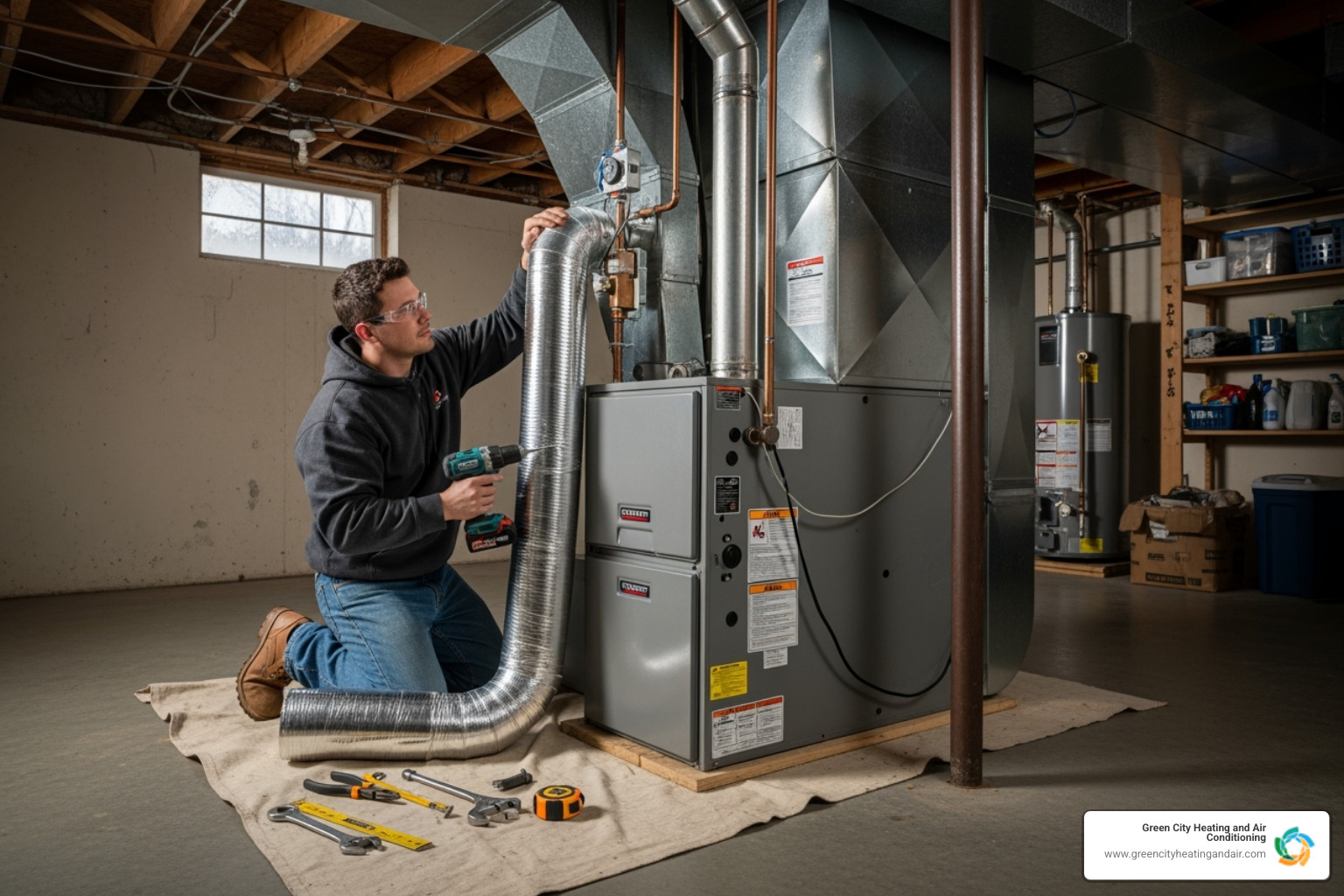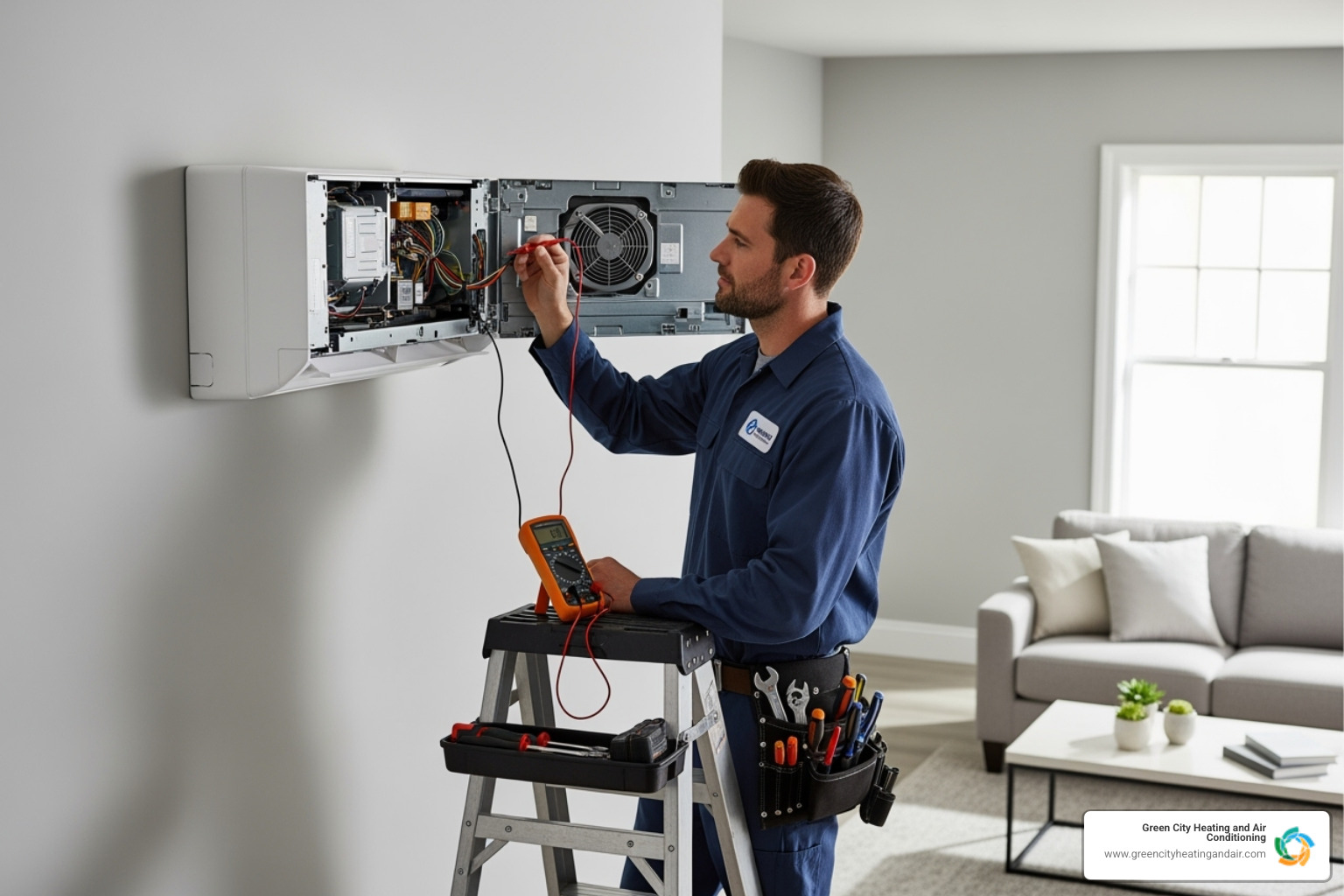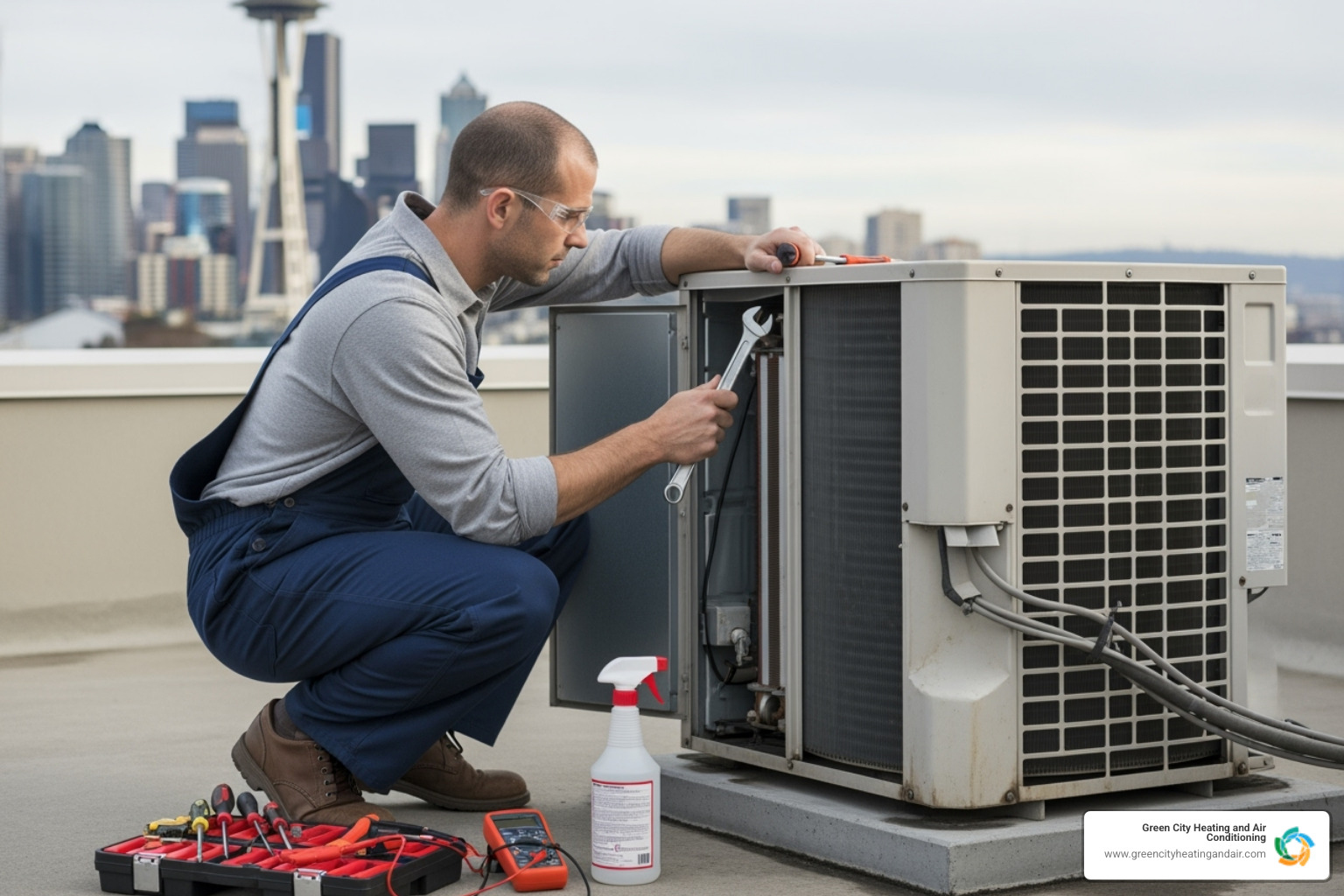Boilers are a crucial part of keeping homes in Mercer Island comfortable throughout the colder months. They work by heating water and distributing it through radiators, baseboards, or radiant floor systems. For boilers to perform efficiently and safely, every component needs to be running smoothly. One of the most overlooked parts is the pressure relief valve. This small but important device helps release excess pressure inside the boiler to prevent serious issues.
When the pressure valve fails, the whole system loses its safety backup. Problems such as water leaks, system shutdowns, and even damage to surrounding areas can occur when it is not working properly. Homeowners often miss the early signs of these failures, which can lead to costly repairs if left unchecked. Knowing what warning signs to look for and what might cause them is the first step in protecting boilers in Mercer Island homes.
Common Signs of Pressure Valve Failure in Boilers
Not all boiler issues point directly to the pressure valve, but there are a few key signs that usually indicate a problem with this component. Catching these symptoms early can help reduce the risk of emergency breakdowns.
Here are some of the most common signs that the pressure relief valve might be failing:
- Unusual noises: If you hear a hissing, rattling, or bubbling sound near the boiler, it could indicate the valve is struggling to regulate pressure or is not sealing properly.
- Frequent shutdowns: A boiler that turns off often may be dealing with pressure problems. A faulty valve might not be allowing pressure to escape when it should, triggering system shutdowns to prevent overheating.
- Leaks around the valve: Water pooling or dripping near the valve is a clear warning. Even minor moisture could mean the valve is not closing correctly or is releasing steam when it should not.
- Slow heating or lack of heat: Even if the boiler runs, reduced pressure can prevent proper water circulation, which weakens the overall heating output.
- Rising pressure on the gauge: If you notice the pressure steadily increasing past the normal range without stabilizing, the relief valve may be stuck or clogged.
Ignoring these warning signs may lead to more severe damage. For example, one Mercer Island resident noticed condensation forming near her boiler closet. Upon closer inspection by technicians, it turned out the valve had been slowly leaking for weeks, damaging not just the boiler but also the surrounding drywall and flooring.
Causes of Pressure Valve Failures
A failed pressure valve does not always mean the whole boiler needs to be replaced. Still, understanding what causes these valves to fail helps prevent future damage. There are several common reasons this part might stop working as it should.
1. Debris and Mineral Buildup
Over time, mineral-rich water can lead to sediment collecting inside the valve. This blocks the valve's mechanism from opening or closing properly. In some cases, it might stick partially open, which lets pressure and water escape unnecessarily.
2. Normal Wear and Tear
Valves, like any mechanical part, wear out. After years of regular use, the springs or seals inside can weaken, making them unresponsive to pressure changes. Annual use in Mercer Island homes that rely heavily on boilers during colder months accelerates this issue.
3. Installation Issues
An improperly installed valve may not be aligned or calibrated correctly. If the original installation was not done to exact specifications, the valve might activate at the wrong time or not activate at all.
4. Lack of Routine Servicing
Pressure valves need to be inspected and tested on a regular basis. Without maintenance, small internal issues go undetected and get worse with time.
Each of these causes can seriously impact a boiler’s performance. Addressing them early through professional inspection and servicing goes a long way in protecting the system and extending its lifespan. In the next section, we will explore how to safely identify signs of pressure valve issues and what steps can be taken to confirm whether the valve may need repair or replacement.
Steps to Diagnose Pressure Valve Issues
Knowing how to spot early valve issues can help prevent long-term damage to boilers in Mercer Island homes. While you should not try to take the boiler apart yourself, you can keep an eye out for some signs and make basic checks before calling in professionals.
Here are three safe ways to monitor the health of your boiler's pressure relief valve:
1. Visual Inspection
Start by looking for any obvious signs of wear or damage. Be on the lookout for corrosion around the base of the valve, visible cracks, or any steam or water lingering around it. If there is water staining nearby or puddles on the floor, that is a strong sign the valve is not seating correctly.
2. Check the Pressure Gauge
Most boilers come with a built-in pressure gauge. If the needle is stuck near the top or shows large fluctuations while the system is on, the valve may not be releasing pressure like it should. A reading consistently above the normal operating range means the valve could be blocked or no longer reactive.
3. Test the Valve
Some valves have a manual test lever. You should only try this if you know it is safe and accessible to do so. Lifting the lever should release a bit of water or steam briefly, then stop once released. If water keeps leaking or nothing happens, the mechanism could be jammed or clogged.
If any of these steps reveal possible issues, do not wait to address them. Even a minor leak can lead to water damage or system inefficiency. Boilers work under pressure, so postponing repairs can turn a small problem into a larger one very quickly.
Why Regular Inspection and Maintenance Matter
Ignoring a pressure valve problem is never a good idea. The valve is a safety device, so if it fails, the boiler can run at levels that are not safe. In a worst-case scenario, the system may overheat or leak hot water where it should not. Besides safety risks, a faulty valve contributes to energy waste, inconsistent heating, and potential tank damage.
Scheduling regular checks can catch early warning signs before they turn into full system failures. Professionals do not just look at the pressure relief valve in isolation. They inspect the entire boiler system, test components, and make sure each part works as expected. Identifying worn parts or buildup inside the system helps prevent future shutdowns and improves overall reliability.
Our technicians bring the tools and training needed to test valve response and inspect internal boiler components without guesswork. This is especially helpful for boilers in Mercer Island that go through heavy use during the extended cold months. Regular service visits help extend the life of the boiler and reduce the need for surprise repairs at the worst times.
Long-Term Efficiency Starts with Consistent Maintenance
Boiler performance does not only depend on new parts or emergency fixes. Routine care remains one of the most important things homeowners can do to avoid unexpected issues and keep their systems running efficiently. This is especially true with summer on the horizon, since older systems often struggle when bringing heat down after months of continuous use.
To help keep your system in top shape over the long term:
- Check pressure gauge readings every few weeks
- Listen for unusual sounds during operation
- Monitor areas around the boiler for signs of moisture or discoloration
- Do not ignore short cycling or overly hot radiators
- Schedule seasonal inspections, even during off-peak months
Even small changes in how the system runs can be clues that something is not right. If the boiler suddenly starts heating unevenly or making new noises, the valve or a related part might be involved. While it is tempting to wait until there is a clearer problem, earlier intervention usually leads to faster, cheaper fixes.
Securing Boiler Efficiency in Mercer Island Homes
Addressing pressure relief valve concerns is a big part of keeping boilers in Mercer Island safe and effective. The valve prevents pressure buildup that can ruin performance and cause leaks or worse. Knowing how to watch for early warning signs helps keep heating systems reliable, especially just after the cold season.
Whether your system is brand-new or has been heating your home for years, staying ahead of problems always beats reacting to emergencies. Keeping up with valve inspections, pressure checks, and general boiler maintenance saves time, limits breakdowns, and protects your home from damage. Reliable heating does not happen by accident. It depends on clear steps and timely support.
If you notice any irregularities or suspect a problem with your pressure relief valve, timely attention is key to avoiding further damage to your home's boilers in Mercer Island. Green City Heating and Air Conditioning encourages homeowners to schedule professional inspections to maintain system performance and safety, ensuring comfort throughout the colder months. For a quick estimate or to book a service visit, please contact us today.
More Blogs
Latest
insights and tips

Warmth Unleashed: The Ultimate Seattle Furnace Installation Handbook

Emergency Ductless AC Repair in Bellevue: Get Your Cool Back Fast










